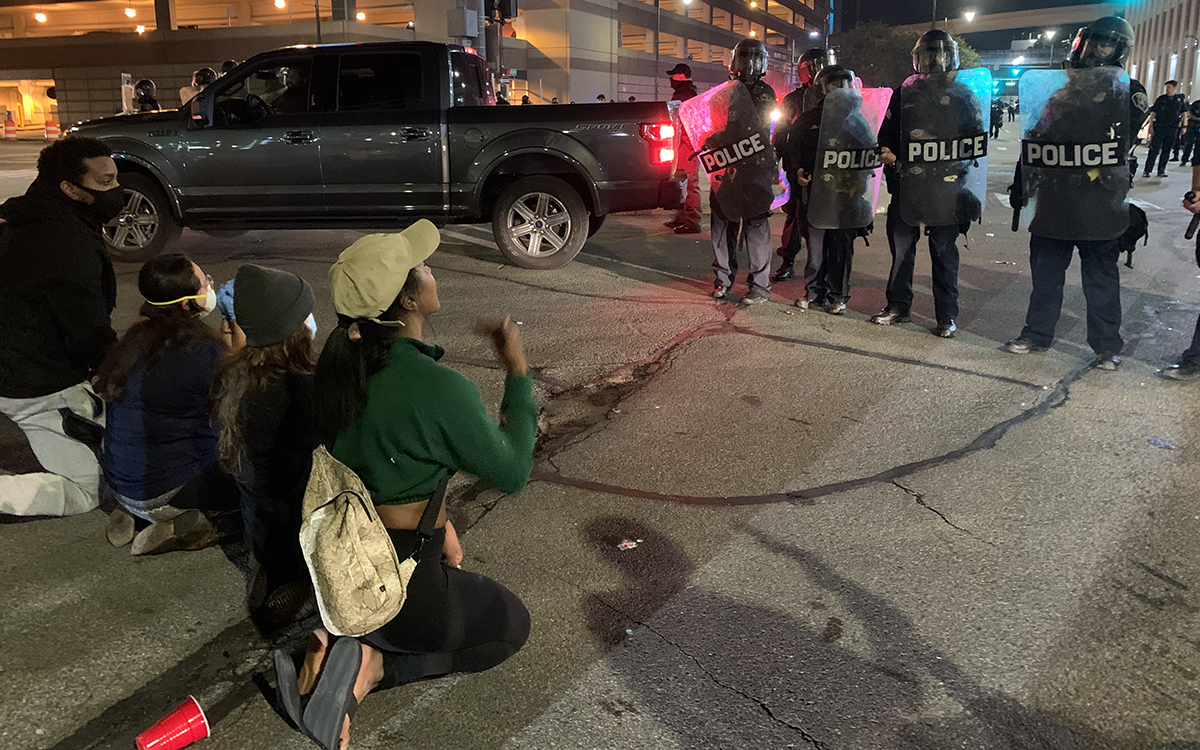How TV Shows Like ‘Cops’ Normalized Police Brutality
With a new chapter unfolding in America’s racial and social justice reckoning, comes the end of some problematic yet popular television programs.

After more than 30 years, the long running television show ‘Cops’ has been cancelled.
“We start to believe that things really are that bad in our communities.” — Kimberly Moffitt, University of Maryland, Baltimore County
A similar program, ‘Live PD’ was cancelled recently too, following reports of a 40 year old African American man dying in police custody while a ‘Live PD’ crew was filming last year. ‘Cops’ was at one time considered as American as peanut butter and jelly, and ‘Live PD’ was one of the A&E network’s most popular shows.
But why? Detroit Today’s Stephen Henderson speaks with two media experts about these television programs and their effect of centering on the glorification of police brutality and simultaneously dehumanizing victims of that abuse.
Listen: Why it was time to say goodbye to ‘Cops’ and ‘Live PD.’
Guests
Eric Deggans, NPR TV Critic, says that he’s “been speaking out against ‘Cops’ for 15 years or more, you see this cavalcade of suspects, working class people of color and… it gives people a false sense of what’s happening in their communities.”
“One of the things most damaging about message of shows like ‘Law & Order’ is that they promulgate the idea that to get great policing it’s about individual choices.” — Eric Deggans, NPR
He points to the time of Rodney King’s death and consequential riots as a time when the show ‘Cops’ was coming out and “all these terrible dynamics and trends that came together in a cultural moment.”
On the larger trend of television’s penchant for and portrayal of criminal justice drama in general, he says that “one of the things most damaging about message of shows like ‘Law & Order’ is that they promulgate the idea that to get great policing it’s about individual choices, that all we need to do is get the righteous cop into the situation and they can cut through the bureaucracy and they will serve justice.” In reality, Deggans says there are systemic issues and shows like ‘The Wire’ are much more complex and are also more closely aligned with how criminal justice processes actually play out.
Dr. Kimberly Moffitt, professor of media studies at the University of Maryland, Baltimore County,says “good riddance” to shows like “Cops.”
She notes that these shows are “geared to middle class audiences and because of that lens, it allows us to other-ize, and make these lives a spectacle.”
“To be able to craft a narrative and world view for us, we start to believe that things really are that bad in our communities,” Moffitt says.
Trusted, accurate, up-to-date
WDET is here to keep you informed on essential information, news and resources related to COVID-19.
This is a stressful, insecure time for many. So it’s more important than ever for you, our listeners and readers, who are able to donate to keep supporting WDET’s mission. Please make a gift today.
